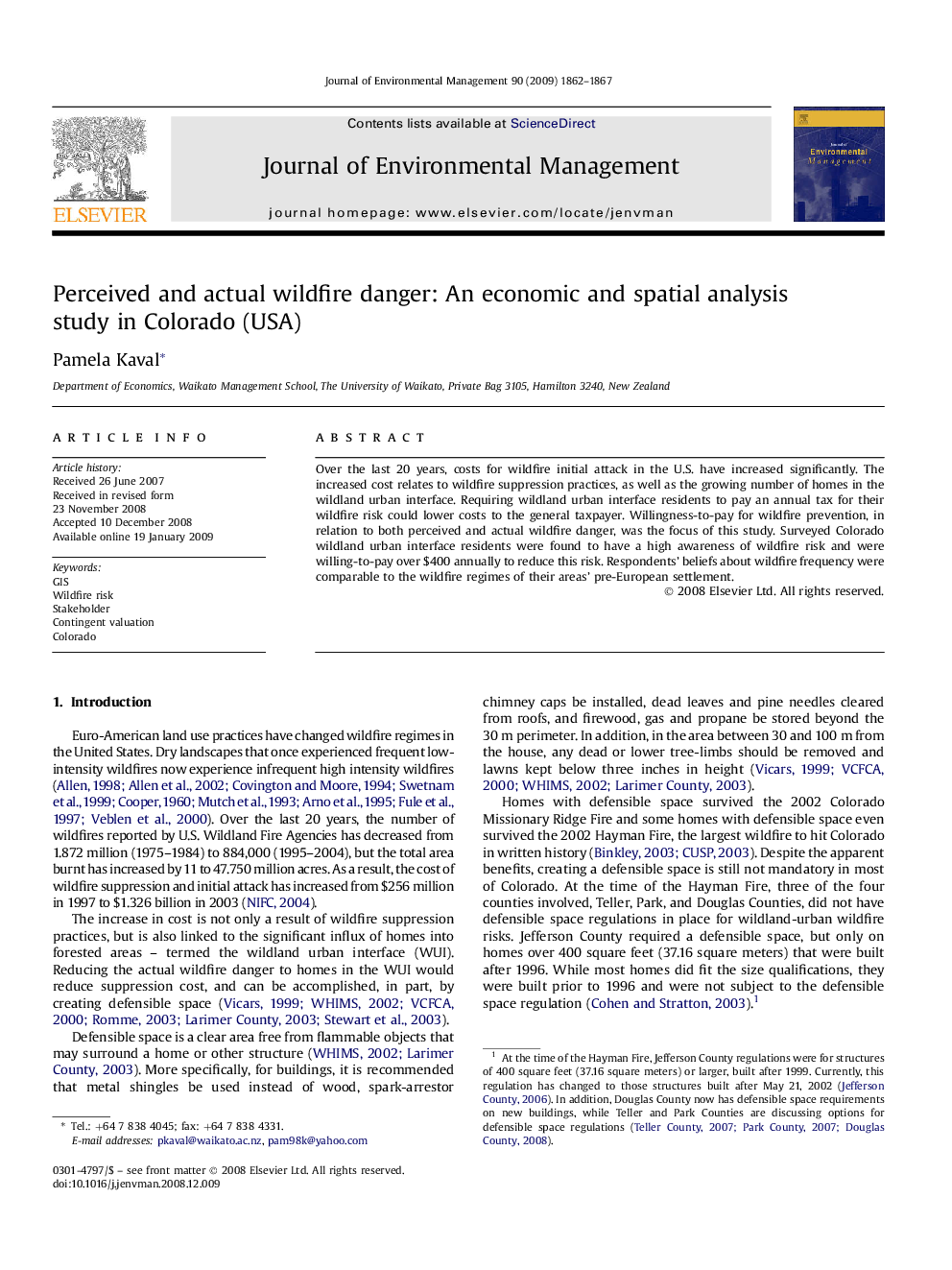| Article ID | Journal | Published Year | Pages | File Type |
|---|---|---|---|---|
| 1057379 | Journal of Environmental Management | 2009 | 6 Pages |
Over the last 20 years, costs for wildfire initial attack in the U.S. have increased significantly. The increased cost relates to wildfire suppression practices, as well as the growing number of homes in the wildland urban interface. Requiring wildland urban interface residents to pay an annual tax for their wildfire risk could lower costs to the general taxpayer. Willingness-to-pay for wildfire prevention, in relation to both perceived and actual wildfire danger, was the focus of this study. Surveyed Colorado wildland urban interface residents were found to have a high awareness of wildfire risk and were willing-to-pay over $400 annually to reduce this risk. Respondents' beliefs about wildfire frequency were comparable to the wildfire regimes of their areas' pre-European settlement.
